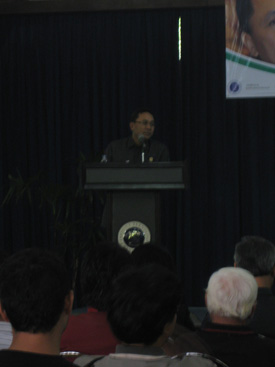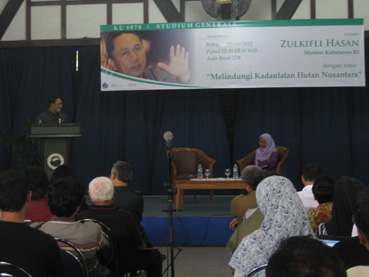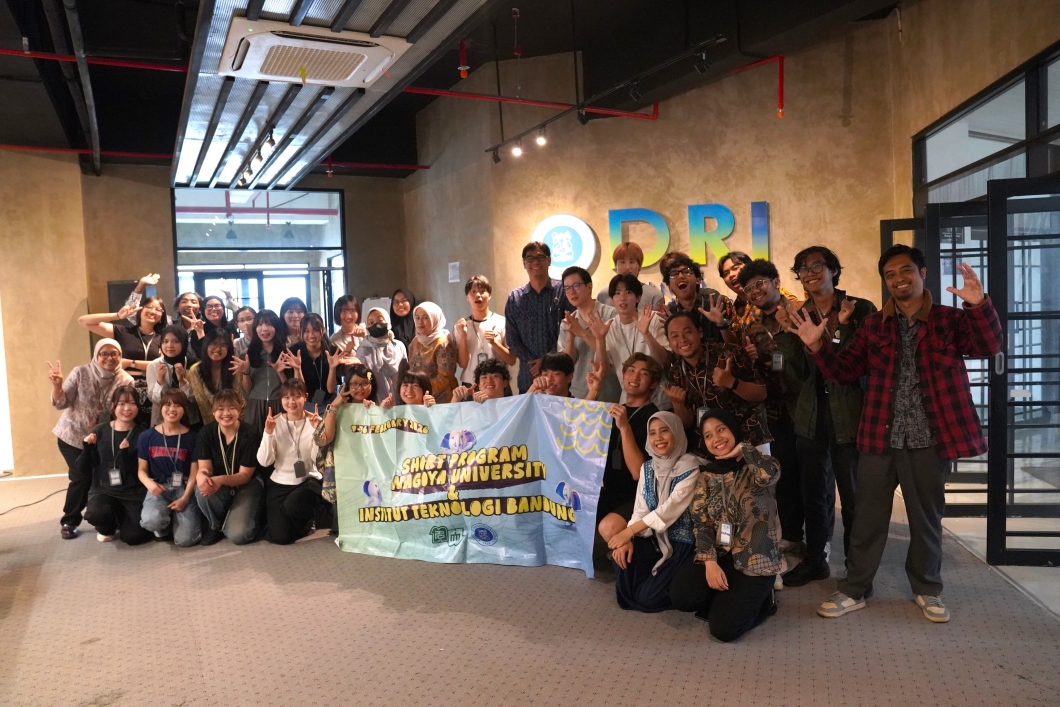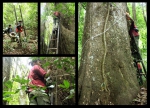Studium Generale: Optimizing Forest Resources to Support National Economy
By Ria Ayu Pramudita
Editor Ria Ayu Pramudita

 BANDUNG, itb.ac.id - ITB has once again had the honor of hosting an important public figure; the Minister of Foresty, Zulkufli Hasan, to speak in the campus hall as part of the Studium Generale subject. The class, moderated by the Dean of the School of Biological Science and Technology, Prof. Tati Syamsudin Subahar, discussed the importance of science and techhnology and their stretagic applications in developing and optimizing our forests in order to improve the well-being of the local population who lives in the proximity.
BANDUNG, itb.ac.id - ITB has once again had the honor of hosting an important public figure; the Minister of Foresty, Zulkufli Hasan, to speak in the campus hall as part of the Studium Generale subject. The class, moderated by the Dean of the School of Biological Science and Technology, Prof. Tati Syamsudin Subahar, discussed the importance of science and techhnology and their stretagic applications in developing and optimizing our forests in order to improve the well-being of the local population who lives in the proximity.
Zulkifli stated that once, the forest was Indonesia's second biggest source of income after oil and gas. Right now, though, that is not the case anymore because most forests in the country have suffered massive damage which render them incapable of producing sufficient resources in order to contribute significantly to the national economy. This is unfortunate, seeing that, according to him, Indonesia has the second richest forest resources potentials, right under Brazil.
The reparation of forests is a crucial move to take. More over, according to Zulkiflu, 13% of Indonesia's poor citizens reside close to forests. This is very ironic, considering the rich potentials of the nature around them.
"The root of this problem is that most people perceive forests as only a source of timber. Its potentials acrually go far beyond that, and we need to preserve them if we are to harvest these resources."
The forests are a powerful capital for the nation's future. Beside functioning as sources of water and energy, forests, with their plama-genetic richness, has enormous and many yet-to-be-discovered potentials in food and medicine. In addition, forests can also become Indonesia's largest capital in the carbon trading scheme in the various international agreements committed to mitigating climate change.
Forestry Engineering Major
 In order to utilize forests well, any operations and programs that seek to do so must be based on valid data and facts, in addition to trusted research results. Zulkifli regrets that there has not been a sufficient amount of researches and studies concerning the non-timber side of Indonesian forests.
In order to utilize forests well, any operations and programs that seek to do so must be based on valid data and facts, in addition to trusted research results. Zulkifli regrets that there has not been a sufficient amount of researches and studies concerning the non-timber side of Indonesian forests.
This is why he welcomes ITB's move in opening a major in Forestry Engineering, which will reside in the new Jatinangor campus.
He hopes that through the opening of majors such as Forestry Engineering in Indonesia's top research institutions, the country will be able to achieve the key to optimizing the forests; a paradigm shift from a timber-based management to one that is resource-based.




.jpg)
.jpg)


